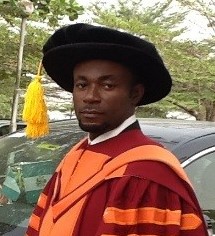on the Successful Completion of
Research and Development Projects in Nigeria
FEATURED PAPER
By Ibeawuchi Ifeanyi Echeme, PhD
Department of Project Management Technology
Federal University of Technology, Owerri
Imo State, Nigeria
Abstract
This study assessed the effect of Task-Force Team Formation on the Successful Completion of Research and Development (R&D) projects in Lagos State, Nigeria. The study objectives are to determine the level correlation between project taskforce team formation and delivery of R&D projects, to analyse the significance of factors considered in the formation of project team for R&D projects, and to determine whether level of productivity of project team members have significant effect on successful completion of R&D projects. Data were obtained through questionnaire administration to the selected research institutes in Lagos State, Nigeria using purposive sampling technique. Inferential techniques were employed for data analysis. The findings show that, formation of team member improve the performance of R&D projects, factors for the formation of R&D team are significant, and productivity of project team affects the successful completion of R&D projects. Hence the study recommends the adoption of cross-functional team formation method, adherence to the factors of team formation for improved productivity of the team and R&D project delivery.
Keywords: project delivery; team formation; task-force; research and development projects; research institutes.
1.0 Introduction
Research and development projects have been acknowledged to be an engine for national development through the creation of platform for technological development. Hence, Research and Development (R&D) is seen as the ability to conduct different type of research, used to create knowledge for product and technology development (Frascati, 2002). Human Resource allocation process has made significant impact in the Research and Development projects of research institutes, through working together of various individual with varieties of skill and knowledge. However, R&D project team could be formed independently to conduct research and produce research output independently. The team could also be partly integrated as project activities are sequential, hence team efforts depend on the results the preceding partners reached during the previous stage. The team can equally be formed through full integration of project team and interrelate with each other in terms of activities and results.
Project teams are capable of increasing an organization’s adaptability to dynamic environment, by dealing with complexities of working and production processes (Amir, Naz, Hafeez, &Ashfaq, 2014). Katzenbach (2003) pointed out that an effective team composed of a small number of people with complementary skills who are committed to a common purpose, established performance goals, and approach that hold themselves mutually accountable. One of the important elements in building effective teamwork is team formation. The team member formation is the first task to carry out in order to guarantee successful team performance (Guzzo, Hollenbeck, and DeRue, (2004), Kozanoglu and Fahri, (2009), Paris, Salas, & Cannon-Bowers, (2000). Guzzo et al. (2004) added that team formation describes matching personnel to team roles and responsibilities. Consequently, there are many author such as Venkatamuni and Rao (2010), Ahn et al. (2007), Tseng, Wang, & Ku, (2009) that have developed different types of technique for team formation, using multi-dimensional trust which shows that worthiness assessment have significant benefit in team formation. However Cann,-Jansen and Brinkkemper (2012), warned that this techniques lack a number of attributes, like the experience or expertise of potential team members, the project characteristics, and the functions of the team members. It should be noted that during team formation, there are several criteria that are considered which allow decision makers to select the criteria that match each team. With regard to this, Multi Criteria Decision Making (MCDM) is concerned with structuring and solving decision and planning problems involving multiple criteria, the purpose is to support decision makers facing such problems.
Although several approaches have been developed to standardize the process of team formation yet the problem of poor implementation of projects, especially, R & D projects still persist. So, this study provides insights into adopting the “best fit” practices as for the formation of taskforce members in the near future. The country stands to benefit since the improved performance of the team will enhance the positive completion of many R&D projects and contribute significantly to the growth of the Nigeria economy. This study will prompt policy makers to pay due attention to taskforce formation practices and the role of team members in the successful completion of a R&D projects in any Institute funded by the Government. Hence, this study is set to investigate into the possible effect of task-force team formation for prompt delivery of projects, especially, R & D projects in Lagos State, in order to improve the knowledge base of product and technological development in the State and Nigeria in general.
More…
To read entire paper, click here
How to cite this paper: Echeme, I. I. (2022). Effect of Task-Force Team Formation on the Successful Completion of Research and Development Projects in Nigeria; PM World Journal, Vol. XI, Issue III, March. Available online at https://pmworldlibrary.net/wp-content/uploads/2022/03/pmwj115-Mar2022-Echeme-effect-of-team-formation-on-success-of-research-and-development-projects.pdf
About the Author

Ibeawuchi I. Echeme, PhD
Owerri, Nigeria
![]()
Ibeawuchi Ifeanyi Echeme is a lecturer in the department of Project Management Technology, Federal University of Technology, Owerri. Echeme has a B.Tech, MSc, and PhD in Project Management Technology and has published more than fifteen (15) articles in both international and national reputable journals. Dr. Echeme has published a textbook on Project Time, Cost and Quality Management. He is a Certified Project Director (CPD) and a member of International Project Management Professionals (IPMP). Dr. Echeme has presented papers in conferences and workshops within and outside Nigeria. He can be contacted through; ibeawuchi.echeme@futo.edu.ng and ibeecheme@yahoo.com;









